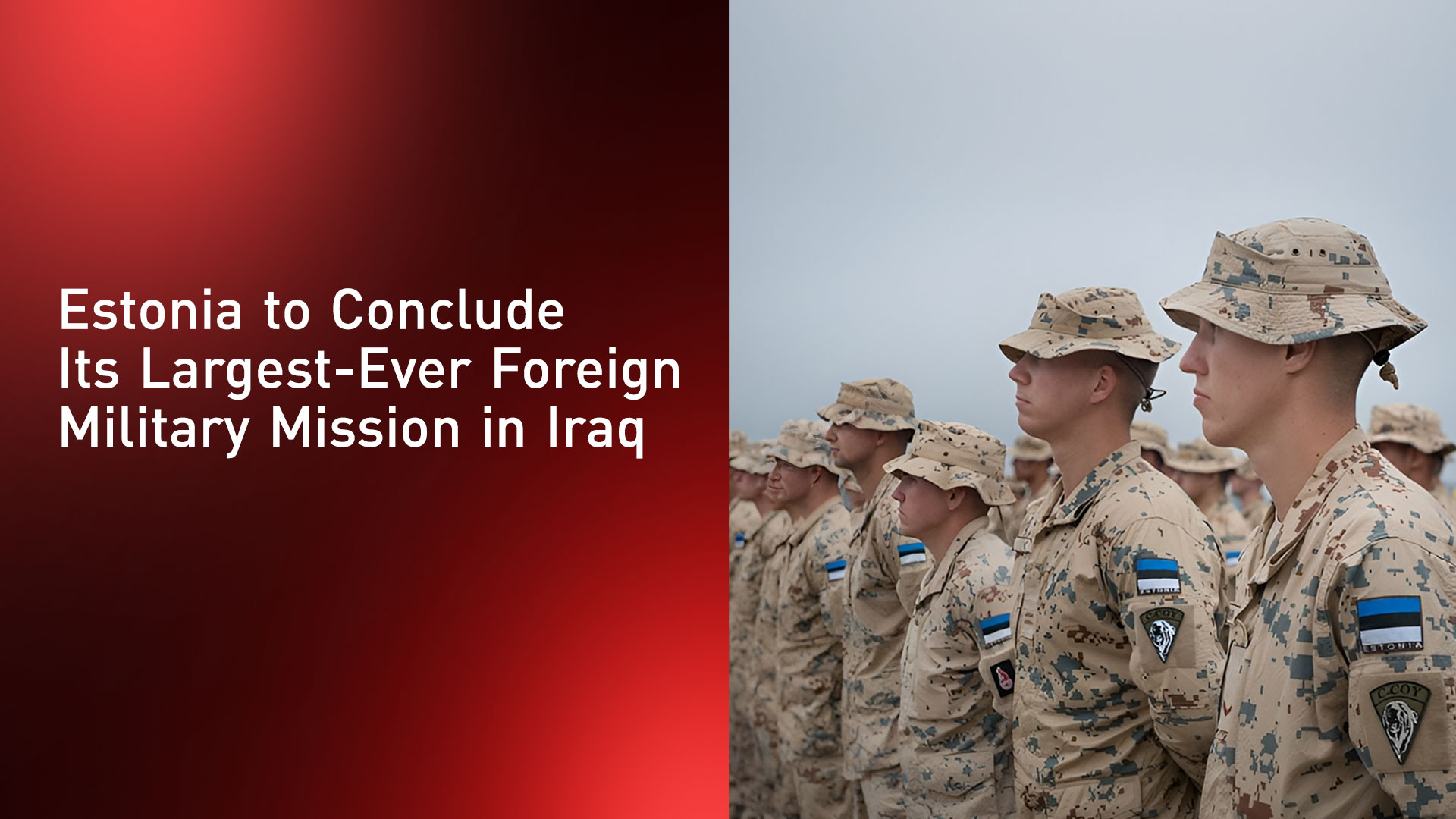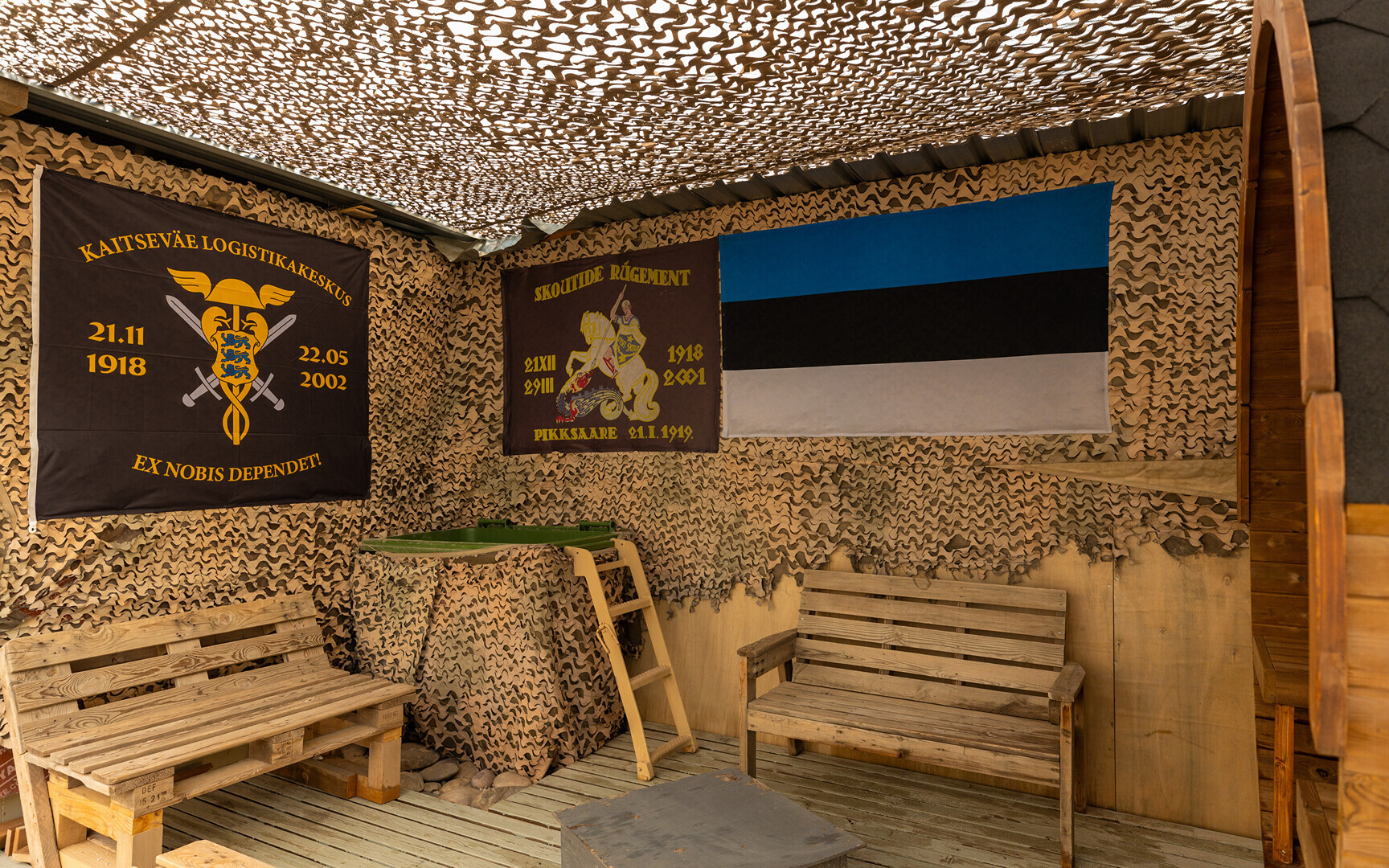Estonia to Conclude Its Military Mission in Iraq
Estonia is withdrawing its troops from Erbil in September, ending its largest foreign mission. Officials cite regional stability as the reason, allowing a shift in focus to Estonia's national defense, though one officer will remain in Baghdad.

By Kamaran Aziz
ERBIL (Kurdistan 24) – Estonia is set to conclude its largest-ever foreign military operation, with the nation’s defense minister formally announcing the withdrawal of Estonian troops from the U.S.-led Operation Inherent Resolve (OIR) in Iraq, bringing an end to a significant deployment based in Erbil.
The country’s personnel are scheduled to return home in September, shifting their focus back to national defense after a mission that officials say provided invaluable experience in a complex security environment.
In an announcement on Thursday, Estonian Minister of Defense Hanno Pevkur confirmed the decision to withdraw the contingent, which has been a contributing force to the anti-Daesh coalition since April 2023. According to the Estonian public broadcaster, News ERR, the move marks the end of a mission that currently sees more than 80 Estonian personnel deployed in Erbil, the capital of the Kurdistan Region.
In a visit to the base, troops spoke with ERR about their impending departure and the nature of their duties. Estcoy-22 commander Major Mart Voolaid emphasized the strategic shift, telling the broadcaster's "Aktuaalne kaamera" news program that the focus must return home.
"We don't need to worry about that, because our main task is to defend Estonia, not another country, and we need to train in Estonia," Major Voolaid said, as reported by ERR. He noted that while the deployment provided a source of experience and income for the troops, the primary responsibility lies in defending their own nation.
The operational tempo for the Estonian forces in Erbil has been demanding. Staff Sergeant Carl Martin Limbach detailed their routine for ERR, explaining a structured six-day cycle that balanced readiness with security duties.
"We operate in a six-day cycle," Limbach said. "Two days in QRF, which means we're ready to respond in and out of the base. If something happens to our soldiers or our allies, we're prepared to react. Then there are two days for personal security operations, where we accompany advisors to meetings outside the base, and two days on reserve."
This work required the troops to adapt to significant local challenges, including a different traffic culture, the region's intense heat, and a security landscape described as "constantly changing." Despite these difficulties, the Estonian forces view the experience gained from training alongside coalition allies in a conflict zone as extremely valuable.
The mission provided more than just tactical experience; for some, it was a profound opportunity for personal development. Sergeant Gerli Tammar told ERR that the deployment offered a unique chance for self-reflection under pressure.
"You definitely get to know yourself better, how you react in certain situations, even in a crisis," Tammar said. "You learn to understand your own behavior and thinking much better because you have time to reach clarity."
According to the Estonian Defence Forces (EDF), the country's contribution to Operation Inherent Resolve consisted of military advisors, a support unit, and an infantry company drawn from the prestigious Scouts Battalion (Scoutspataljon). This infantry unit was specifically tasked with providing close protection and personal security for advisors during movements and meetings outside the base, as well as serving as a quick reaction force near the Erbil airbase in the Kurdistan Region. At its peak, the mission could involve up to 110 members of the EDF per rotation.

The official rationale for the withdrawal, as outlined by Defense Minister Pevkur, is rooted in an assessment of the current security climate. In a statement reported by News ERR, Pevkur acknowledged that "recent developments in the Middle East undeniably affect the already fragile security situation across the region," but he concluded that "Iraq remains stable."
"This allows us to conclude our participation in the operation and shift our focus to developing Estonia's national defence," he added.
As the troops at the base in Erbil slowly begin to pack their equipment, Estonia’s military presence will not vanish from Iraq entirely. News ERR reported that one Estonian staff officer will continue to serve in Baghdad as part of the separate NATO Mission Iraq (NMI).
Looking to the future, Minister Pevkur affirmed Estonia's commitment to international security cooperation, stating that the door remains open for participation in other and larger military operations. However, he stressed a crucial precondition for any future deployment: the consent of the host nation.
"For Estonia, it is important to be alongside our allies. It is also important to gain experience and to share the experience we have," Pevkur told ERR. "We have always said that international security is part of Estonia's security, and when allies are somewhere, we are ready to be there with them. Of course, the condition is that the country we are going to wants us there. No one goes anywhere by force."